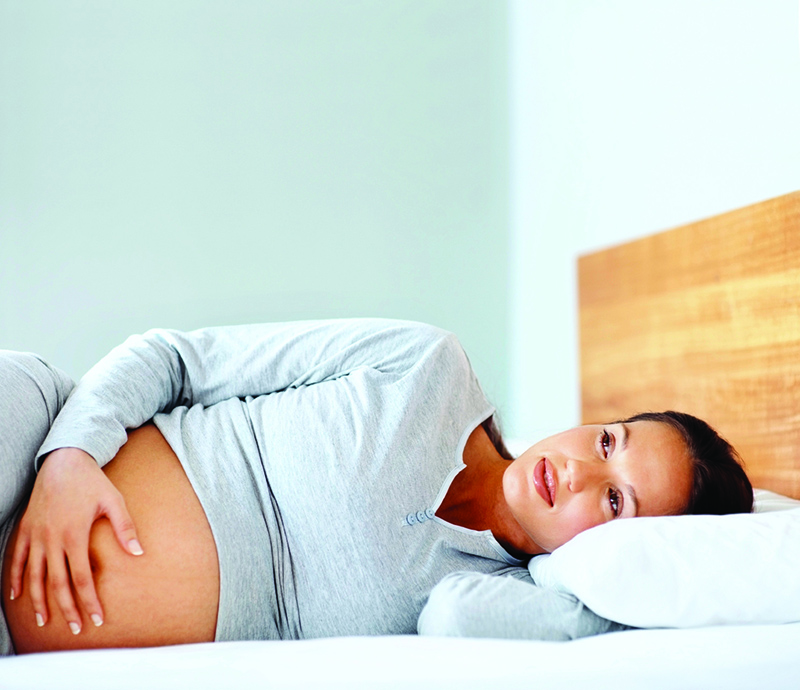
Melissa Rubin, CNM, ARNP
Many women experience some mood changes associated with pregnancy and childbirth. These changes can affect any woman of every age, culture, income level and race. Symptoms can appear at any time during pregnancy and the first year after childbirth.
What are Baby Blues?
Baby blues is a brief period of increased emotions that tends to be characterized by feeling sad, anxious, overwhelmed, irritable and tearful. Baby blues occurs in as much as 80% of postpartum women within a few days of delivery, peaking on the 5th day, and resolving by 2 weeks. Most women can function normally during this time and get through this period of adjustment with extra support from family and friends and without any medical assistance. Women with baby blues are at increased risk for experiencing postpartum depression.
Perinatal Depression, the Most Common Childbirth Complication
Perinatal depression or anxiety occurs during or after pregnancy, and affects 15-20% of pregnant women, making perinatal depression/anxiety the most common complication of childbirth. Postpartum depression is associated with feeling anxious, irritable, inadequate, and sometimes scary thoughts of the baby being hurt. These symptoms do not go away within a few weeks of delivery, often peak by four months postpartum, but can occur up to 12 months after childbirth. Postpartum depression and anxiety causes suffering not just for the woman experiencing these symptoms, but for the entire family. Adverse outcomes may include interference with maternal-infant bonding, early cessation of breastfeeding, impaired infant/child development, adverse effects on early brain development, and family dysfunction. Postpartum depression/anxiety increases the risk of depression occurring again at any other point in one’s life. These conditions are temporary and treatable.
Symptoms of Perinatal Depression may be Hard to Recognize
It may be hard to recognize perinatal depression because often the symptoms are similar to normal experiences of having a newborn; being exhausted, overwhelmed and adjusting to life with a baby. Some women may think that their experiences are just part of being a new mom and may not even know about perinatal depression and anxiety. Sometimes women are afraid of being seen as complaining or not being able to handle motherhood. Some moms feel embarrassed or ashamed that they are not experiencing the joyfulness that they and everyone else, anticipates with motherhood. They fear admitting their negative feelings will lead to their being bad mothers. Each woman’s experience is unique, which is why all women should follow up with their healthcare provider if they have any concerns at all about how they are feeling in pregnancy or postpartum.
Talk to Your Healthcare Provider about Mood Concerns
Many healthcare providers who care for women in pregnancy will screen women in pregnancy and postpartum, with a routine series of questions assessing the woman’s risk. This is a screening tool and not a diagnosis. It is also common for pediatric care providers to screen women at well-baby checkups as another way of assessing how a new mom is coping. Your healthcare provider is someone you should talk to about any mood concerns in pregnancy or postpartum. Postpartum Psychosis, Rare but Real Emergency Postpartum psychosis is a much more serious complication, and thankfully, much rarer, occurring 1-2 times per 1000 births. Postpartum psychosis tends to have a rapid onset, usually within two weeks of birth, and is a break from reality characterized by delusions, disorganized thinking and sometimes hallucinations. Initial symptoms may be more subtle, including insomnia, obsessive concerns about the newborn and frequent mood changes. The delusions and beliefs make sense to the woman experiencing them, and they may wax and wane, at times appearing very psychotic and then “back to normal.” The onset of psychosis during the postpartum period is a medical emergency, as women with postpartum psychosis are at increased risk to commit suicide or infanticide.
If you or someone you care about may be experiencing a perinatal mood disorder, please contact your healthcare provider. There is help available in many different forms. Some other excellent resources are:
• Postpartum Support International 1.800.944.4773
• PSI Washington 1.888.404.7763
• National Suicide Prevention Hotline 1.800.273.8255
• Washington State 24-hour Crisis Line: 1.866.427.4747

